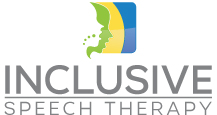Is Speech Therapy beneficial?
Speech therapy provides treatment and support for individuals who are experiencing difficulties with their speech and communication. The method is beneficial for a variety of conditions in both children and adults. Speech is the articulate sound-based expression of thoughts. A speech disorder is a communication barrier that prohibits a person from conversing verbally. Additionally, they may be referred to as communication disorders.
Speech therapy is a highly successful treatment for disorders of speech and communication. Speech therapy is a service provided by a speech-language pathologist (SLP) to those who have speech difficulties. They are health professionals who have been trained to evaluate and treat individuals who have difficulties with their speech, language, or swallowing.
An SLP will begin by conducting an assessment of the individual. They can then differentiate between various sorts of speech impairments and choose how to treat them.
Adult speech treatment can involve a variety of different strategies. These include the following:
Social communication: The SLP may increase communication through problem-solving, memory activities, and conversation exercises.
Breathing exercises: This may be used by an SLP to assist with resonance issues.
Mouth exercises: These are an effective method of strengthening the oral muscles, which can improve communication.
Swallowing exercises: Swallowing difficulties may be caused by medical conditions such as Parkinson’s disease, oral cancer, or a stroke. An SLP can assist a client with these challenges by using swallowing exercises.
These are the conditions that speech therapy for adults seeks to address
Stuttering
Stuttering is a type of speech impairment that specialists define as the repetition of sounds, syllables, or phrases. Stutterers frequently repeat or lengthen words, syllables, or sentences. A person who stutters understands what they want to say but has difficulty communicating it correctly or in a natural manner. A stutter is frequently referred to as a stammer.
Aphasia
Aphasia is a neurological disease in which a person has problems with language or speaking. Aphasia may be triggered by damage to the areas of the brain responsible for language. Strokes are the most common cause of death among adults. Aphasia affects a person’s capacity to express and comprehend language and their ability to read and write.
Articulation Disorder
An Articulation problem exists independently of any other speech or linguistic disability. Articulation disorders are a term that refers to those who have difficulty producing sound through coordinated motions of the lips, tongue, teeth, palate, and respiratory system. Individuals suffering from these diseases may have problems producing specific sounds, such as pronouncing “wabbit” instead of “rabbit.” While a person with phonological problems can produce these sounds appropriately, they may place them incorrectly inside a word. Individuals who have articulation difficulties frequently mispronounce words. Many people also struggle with other aspects of language development.
Resonance disorders
A barrier or impediment to the normal airflow through a person’s mouth while speaking might result in a resonance problem. Healthcare experts frequently correlate this communication issue with cleft palates and other neurological conditions. These illnesses disrupt the vibrations responsible for speech, resulting in distorted speech.
Maybe you are wondering does speech therapy work for adults
YES, it will definitely work.
Numerous studies prove that speech therapy is an effective way for developing communication abilities in children and adults. One study of nearly 700 children with speech or language impairments discovered a considerable favorable effect of speech therapy.
The results indicate that an average of six hours of speech treatment each week for six months improved communication performance significantly. Additionally, speech therapy was significantly more beneficial than no treatment within the same period.
Another study examined the impact of speech therapy on persons who had suffered a stroke and developed aphasia. The evidence indicates that speech therapy is beneficial in resolving these communication difficulties. Additionally, the research demonstrates its efficacy in the early phase following a stroke, often the first six months, and indicates that intensive treatments are more effective.
Another study indicates that speech therapy may be beneficial in the treatment of aphasia. This study demonstrates that 16 sessions of speech treatment spread over eight consecutive weeks aided in improving communication abilities.
While communication and speech impairments are prevalent in Australia, speech therapy has been shown to be an effective treatment for different speech disorder conditions.
Speech therapy is helpful for both children and adults, and SLPs can assist a person in improving their communication abilities through a variety of strategies.

